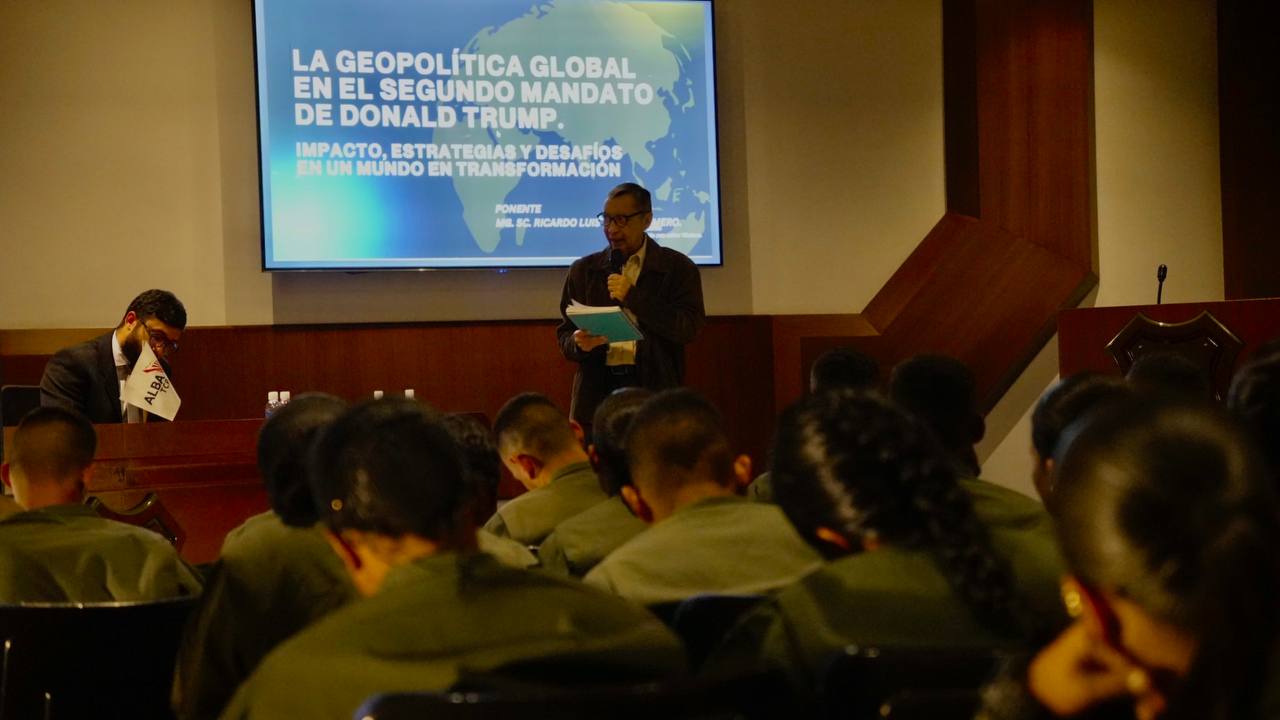Caracas, March 25, 2025 – The lecture Global Geopolitics in the Second Term of Donald Trump, President of the United States, marked the conclusion of the training cycle organized by the Bolivarian Alliance for the Peoples of Our America–Peoples’ Trade Treaty (ALBA-TCP) in collaboration with the Bolivarian Military Academy of Venezuela.
Professor and strategic analyst Ricardo Chang delivered the keynote address, emphasizing that Trump is not a mere coincidence but rather the result of various historical moments, particularly the Cold War, spanning from World War II until 1991. “This period witnessed a struggle for hegemony between the United States and the Soviet Union (USSR),” he explained.
The academic elaborated that while this historical context lasted for several decades, a multipolar world eventually began to take shape. “With the collapse of the Soviet Union, the United States was left without rivals, ushering in an era of American unilateralism,” he noted.
Chang underscored that today, Russia has re-emerged as a major power, while China, since 2008, has asserted itself as an economic powerhouse. Nevertheless, Trump and the United States continue to focus their efforts on imposing their global dominance.
He also pointed out that Venezuela holds a privileged geopolitical position and possesses strategic natural resources. “The reason we have been targeted, the reason they attempted to overthrow President Hugo Chávez and President Nicolás Maduro, is their desire to control our resources,” he asserted.
The lecture placed global geopolitics during Trump’s second term within the framework of a multipolar world and a new phase of globalization. Furthermore, Chang explained, “China now seeks to lead the course of modernity—but not in an Anglo-Saxon or Western manner,” highlighting the emergence of new global powers such as the BRICS nations.
Chang stressed that the current geopolitical shifts have placed the United States in a state of tension and decline, fueling phenomena such as cyberattacks and neo-fascism.
Regarding Venezuela, Jhon Trujillo, a specialist in National Security, argued that the U.S. government has systematically imposed sanctions to harm the Venezuelan people. “These measures are intended to attack them,” he stated. He pointed to economic pressure, shortages (notably in early 2014), and efforts to force regime change through non-democratic means as key strategies employed by the United States against Venezuela.
Finally, Trujillo asserted that these sanctions have also been applied to other nations, such as Cuba and Nicaragua, precisely because they refuse to submit to U.S. interests. He concluded with a call to uphold and strengthen regional unity in response to these challenges.
